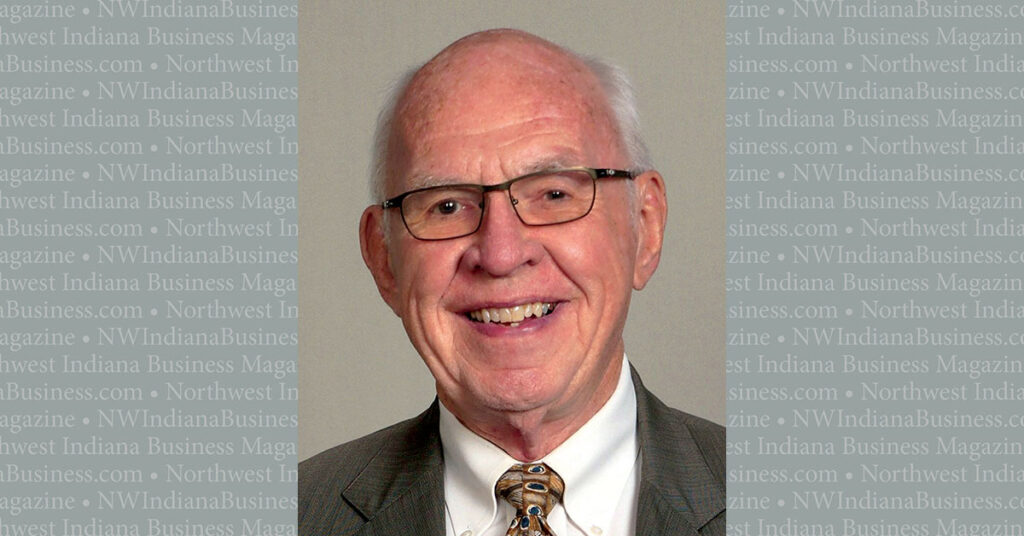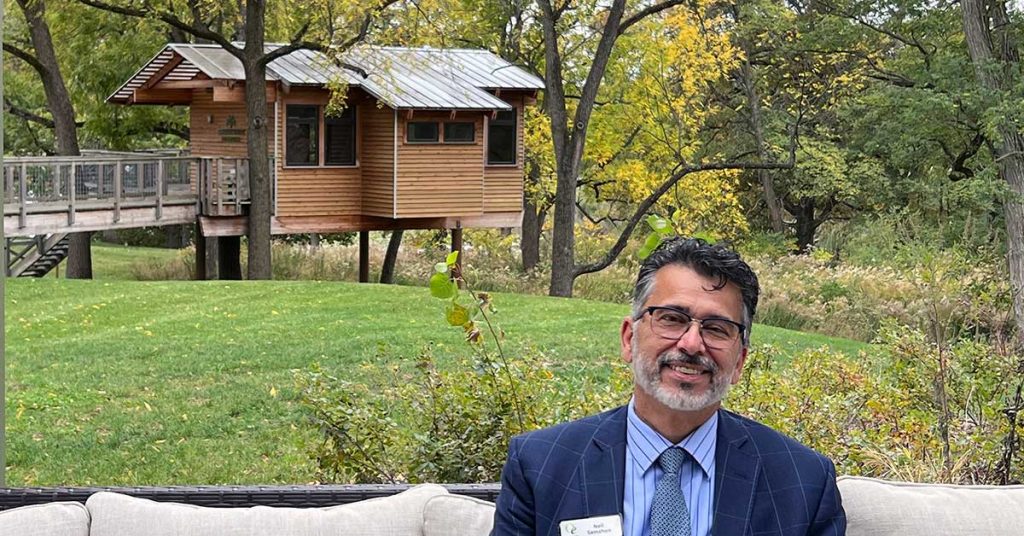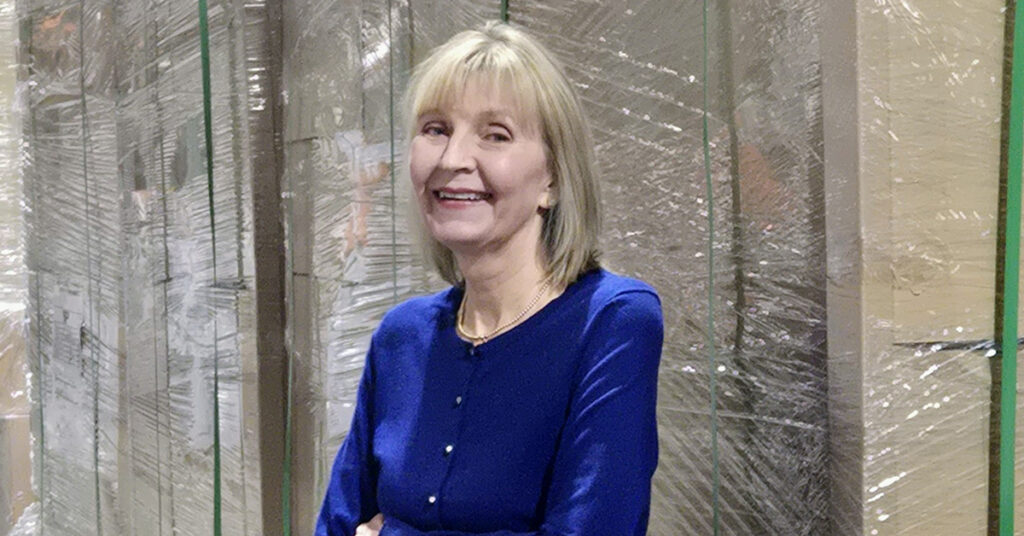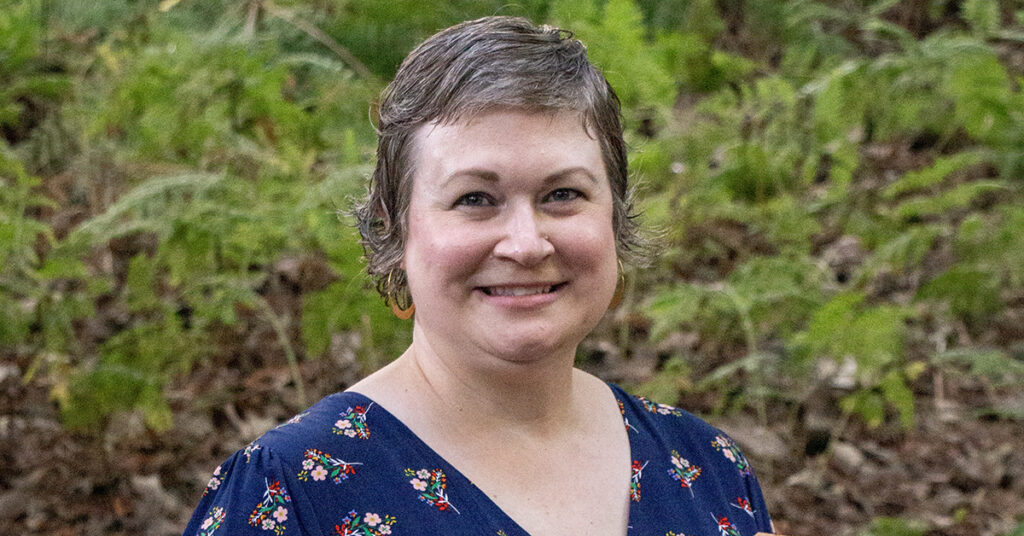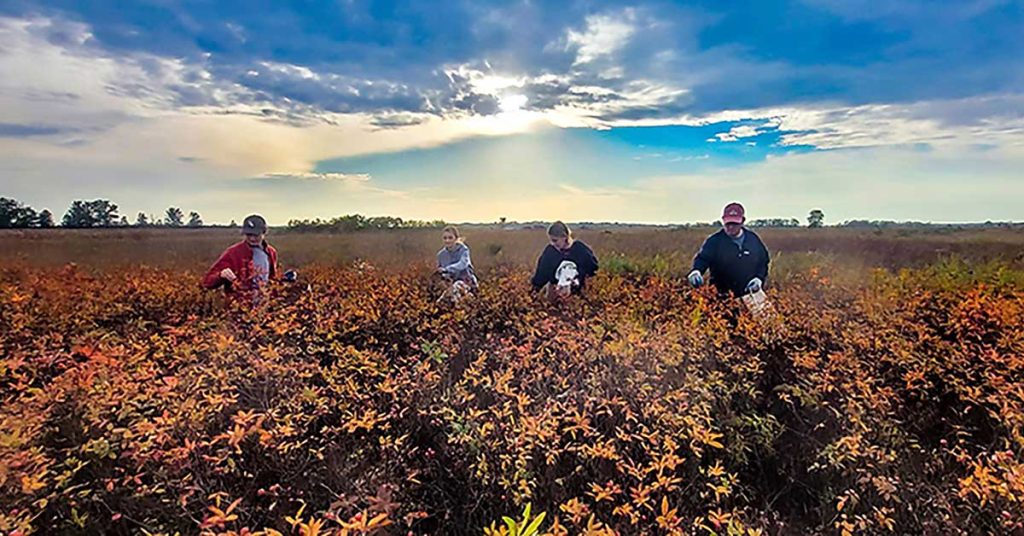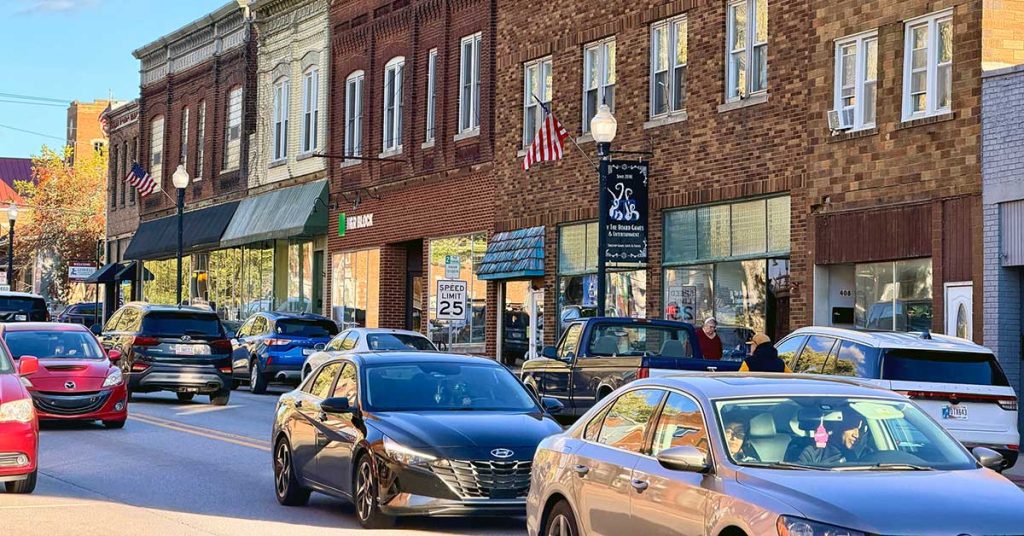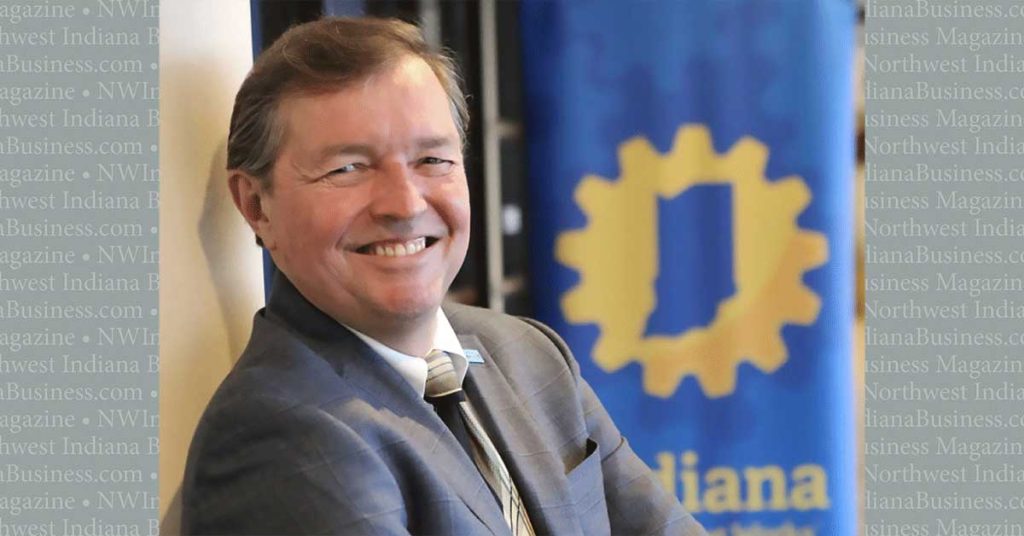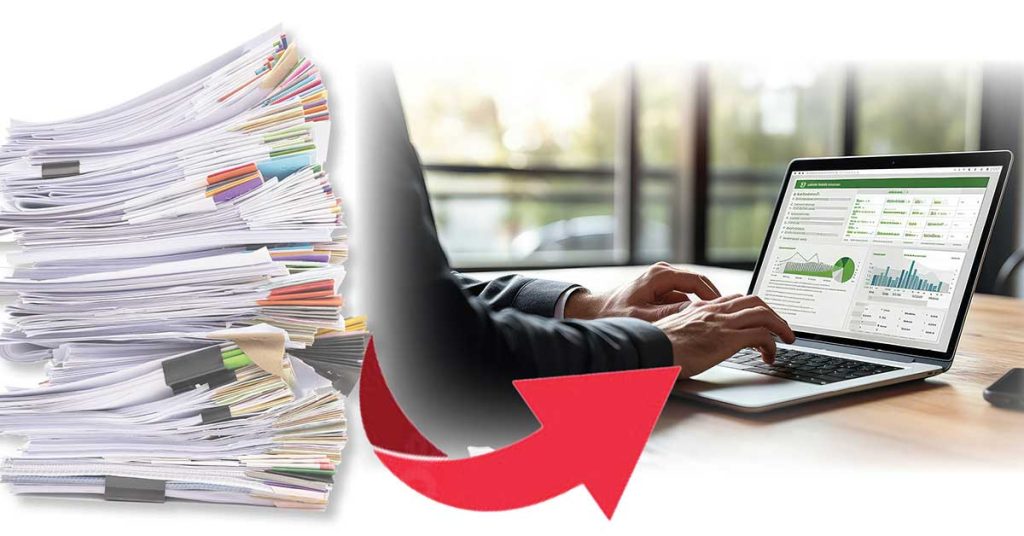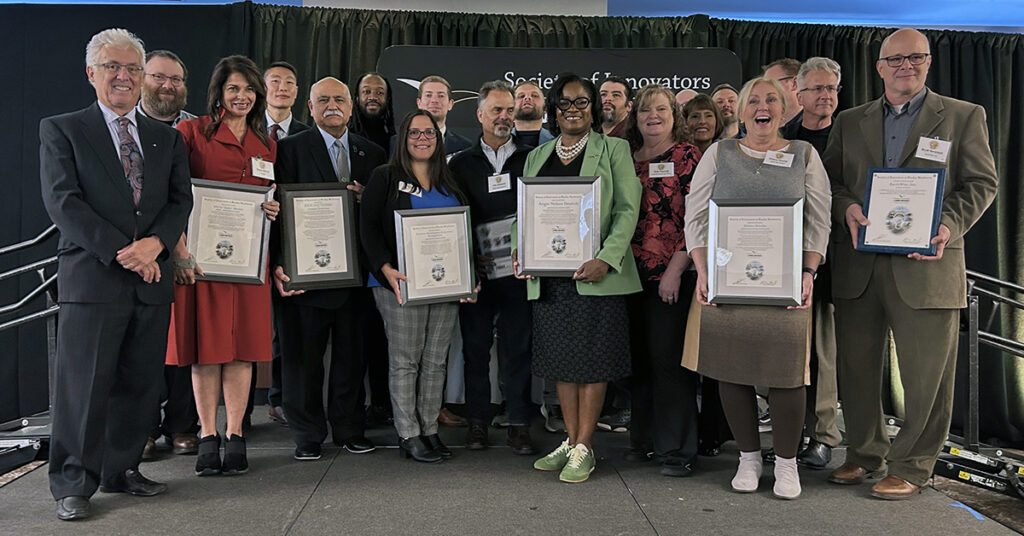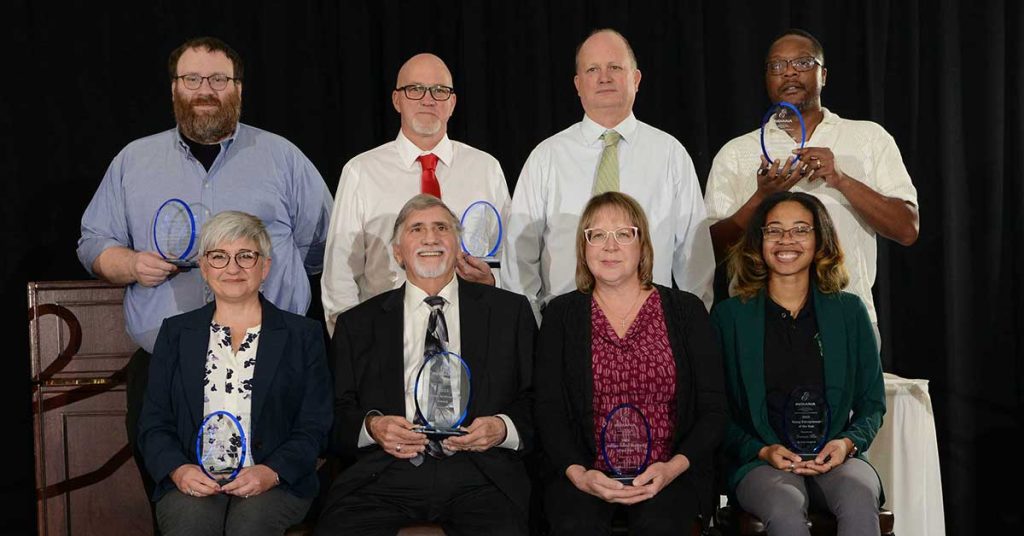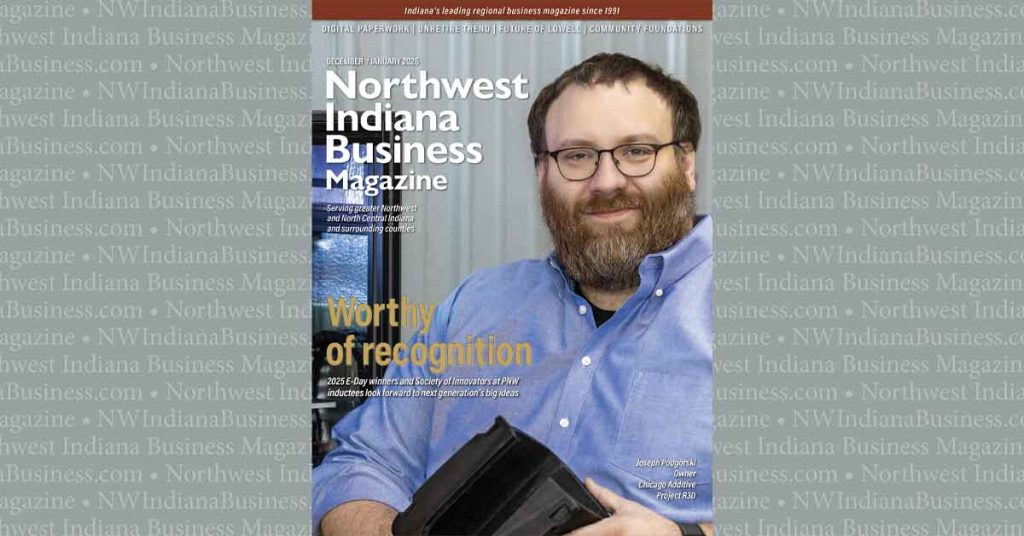
Regional libraries open doors to learning opportunities, entrepreneurial activity
Nestled along the southern shore of Lake Michigan, Northwest Indiana’s public libraries are undergoing a profound transformation.
No longer merely quiet repositories of books, the Region’s libraries are emerging as dynamic, strategic information centers key to the social, educational and economic vitality of their communities. Spurred by the seismic shifts of the digital age, libraries are evolving into indispensable information anchors. They are technology hubs, small business incubators, civic engagement centers, cultural venues and bridges across the digital divide.
“A common misconception is that libraries are no longer relevant in the digital age,” said Julie Wendorf, Indiana Library Federation president and Crown Point Community Library director. “Libraries have long been experts at adapting to meet the evolving needs of their communities. Embracing our role as lifelong learning institutions, libraries continue to develop programs and resources that grow and change to match the communities we serve.”
Numbers show that public libraries remain vital and valued resources in their communities. Over 230,000 people visited the Crown Point library in 2024, an increase of about 27,000 — and program attendance grew by over 10,000. The library also saw the number of cardholders jump by nearly 10%. The numbers reflect strategic efforts across the Region to align services with community needs.
“Libraries are more closely examining the services they offer to be sure that they are staying relevant to the communities,” said Fonda Owens, La Porte County Public Library director. “We ask our community about their expectations for library services in the community. We attend city and county meetings to stay in touch with what other entities are doing and think about how that could potentially impact library services. We interact with economic development organizations and local businesses.”
Libraries are key partners in placemaking and economic development initiatives. By serving as a welcoming hub for learning, connection and culture, a strong community library can create a sense of place and belonging. By offering resources, programs and support for workforce development and small businesses, libraries are also laying the groundwork for local economic growth and resilience.
“Public libraries have the power to transform lives in profound ways,” said Carol Daumer Gutjahr, CEO of the Lake County Public Library. “When someone walks out of the Lake County Public Library with what they sought, it’s a testament to our shared success.”
Community bridges
Northwest Indiana communities are richly diverse — multigenerational, multicultural and economically varied. Libraries are responding with deliberately inclusive and accessible programming.
“One of the wonderful aspects of libraries is their ongoing evolution, shaped significantly by the interests of our patrons,” Gutjahr said. “A well-rounded public library should strive to offer something for everyone.”
For some residents, this means room after room of well-stocked bookshelves. For others, it means a deep catalog of digital books. Library members are also seeking a range of programming and experiences beyond the pages of books.
“Folks need a ‘third space’ that isn’t work or their homes to connect with their community, relax and enjoy their free time,” said Heather Chaddock, Westchester Public Library executive director. “I feel very strongly about providing opportunities for people of all ages to remain tethered to ‘the real world’ when so much of our lives are now spent in front of a screen.
“It’s good for our brains to turn the pages of a newspaper, talk about a book you enjoyed with a friendly library clerk or enjoy a cup of coffee while watching your children play.”
Genealogy and local history rooms at libraries are anchoring older adults and lifelong learners, nurturing local pride. Kids and teens areas filled with STEM toys; media tools and video games are engaging youth on their turf. Multi-use rooms provide space for workshops to help adults write their resumes, look for jobs, prepare their taxes and gain financial literacy.
Libraries are also pivoting into lending outlets for life’s tangible needs. La Porte County Public Library has a Library of Things, with items such as tools, video game consoles, yoga kits and memory kits for caregivers. All it takes to borrow an Instant Pot is a library card.
Makerspaces are an increasingly common feature in public libraries across the Region. These creative, hands-on learning areas give library users the opportunity to explore, invent and build using a variety of tools and materials. Makerspaces often include equipment like 3D printers, laser cutters, sewing machines, robotics kits and design software — available for public use. These spaces support learning through doing, encouraging innovation, collaboration and skill development in areas like science, technology, art and entrepreneurship.
“Libraries are always dreaming up new ways to welcome people to come in and stay a while,” Chaddock said.
The approach reflects a growing recognition: libraries are foundational infrastructure and must engage multiple age groups and life situations. Mission-driven interventions are meeting people where they live, learn and play. To fill transportation gaps in urban and rural Northwest Indiana communities, mobile libraries are unlocking resources across neighborhoods by providing books, programs and digital access.
Libraries are also addressing needs in areas confronting pockets of digital inequality where internet access isn’t universal. La Porte’s Library of Things also includes hot spots and tech packs to help people access the internet from anywhere. Hot spots, complete with instructions and charging cords, can be checked out for 30 days. Tech packs include a Chromebook, Wi-Fi hot spot and mouse. Visitors to La Porte County Public Library logged over 40,000 Wi-Fi sessions and nearly 21,000 public computer sessions last year.
Public libraries act as equalizers, providing high-speed internet access, systems literacy and free devices — empowering job seekers, students, entrepreneurs and seniors fluent in offline life to fully participate in a connected economy.
Catalyzing economies
Public libraries are emerging as hubs of entrepreneurial activity in the Region.
“Libraries are often a first stop for entrepreneurs as they explore business ideas and begin gathering resources,” Wendorf said.
Access to economic databases, research tools and quiet meeting rooms gives small businesses and nonprofits a vital boost. Small business owners and local nonprofits often lack the resources to subscribe to databases that can be used to create marketing plans, conduct competitive analyses, raise funds and locate contacts.
“Libraries provide support for groups often underrepresented in the business world, including those in low-income or rural locations. These are valuable, diversifying voices,” Chaddock said. “There are more than 200 public libraries in the state of Indiana, and they are a critical place for small businesses to perform research, networking and gain technological access.”
Recognizing this, libraries are expanding their business services — providing resources, offering grant guidance and hosting workshops and fairs that connect creators, employers and civic groups.
“I think the amount of information available at the library to small and emerging businesses is a hidden gem,” said Stephanie Murphy, St. Joe County Public Library executive director. “Social media allows us the opportunity to get the word out in new ways. Our partnerships with other business supporting organizations, like the Small Business Development Center, are key to people finding out how we can help.”
As a librarian at St. Joe County Public Library, Scott Sandberg helps lay the foundation for small businesses to grow and succeed. He has cultivated relationships with regional agencies such as the Indiana Small Business Development Center, SCORE North Central Indiana, South Bend Vet Center and the South Bend-Elkhart Regional Partnership.
“I have learned starting a business requires you to ask tough questions about the nature of any particular business venture,” Sandberg said. “The relationships have provided me the opportunity to bring the small business experts to the library to educate our patrons on their small business potential.”
Each year, the St. Joe County Public Library schedules a series of workshops in partnership with the ISBDC. Topics include launching a business, legal basics and finding funds for businesses. The library also hosts an entrepreneur hour featuring a panel of local entrepreneurs discussing various aspects of business ownership. The last entrepreneur hour had 63 attendees.
“Local business owners and entrepreneurs ask questions, make connections and develop relationships with those in the community who are there to help them make their dreams a reality,” Sandberg said.
Interaction with economic development organizations was helpful in developing the business center services at La Porte County Public Library, Owens said. The library’s business center gives users the ability to make copies, send faxes, laminate items, print business cards and posters, and have documents notarized.
“We also have a large makerspace that provides equipment and instruction on small scale machines that are used in local industry,” Owens said.
Libraries also support job seekers — providing resources and tools to build skills, explore careers and find employment. The Chesterton Adult Learning Center at the Westchester Public Library offers a variety of free, customized classes for adult learners 16 and older not enrolled in school. The center teaches basic reading, writing and mathematics, high school equivalency and college entrance preparation and English language learning. It also offers vocational testing and online training programs.
Library support for small businesses, entrepreneurs and job seekers delivers meaningful outcomes — from a more skilled workforce and increased tax revenue to thriving local enterprises and stronger, healthier communities.
“With a strong return on every tax dollar invested, libraries need continued support and advocacy to ensure they can keep empowering individuals and strengthening communities,” Wendorf said.
Human infrastructure
At the heart of it all are the people who make it work.
The librarians and technologists who build digital literacy programs one day and source enterprise-grade business databases the next are the unsung superpowers behind the transformation.
“In any age, I think one way libraries have always gauged their success is by making connections. These days, we work hard to connect our patrons to digital resources,” Chaddock said. “Technological devices keep changing, so our staff needs to stay on top of current trends in order to be able to assist our patrons with navigating their new phones, e-readers or laptops … these are the types of questions we are trusted to help with every day.”
Libraries have doubled down on staff development. To best support their patrons, staff members are attending conferences and webinars, reading tech journals and engaging with online communities.
“While we may not master every new tool or product available, we embrace the mindset of lifelong learners,” Gutjahr said.
Like a river that flows through evolving terrain, the Region’s public libraries have adapted to the changes of the 21st century. Their role in anchoring information equity, local entrepreneurship, digital literacy and cultural engagement is vital. The Region’s libraries stand as mission-driven information resources — capable of shaping community resilience and opportunity in ways previously unimagined.
“As the workforce continues to evolve, libraries support Hoosiers through job training, entrepreneurship resources and lifelong learning, especially in rural areas where they help close digital and economic gaps,” Wendorf said. “Public libraries do invaluable work that helps Hoosiers not only meet challenges but build better futures and thrive.” •
Read more stories from the current issue of Northwest Indiana Business Magazine.


